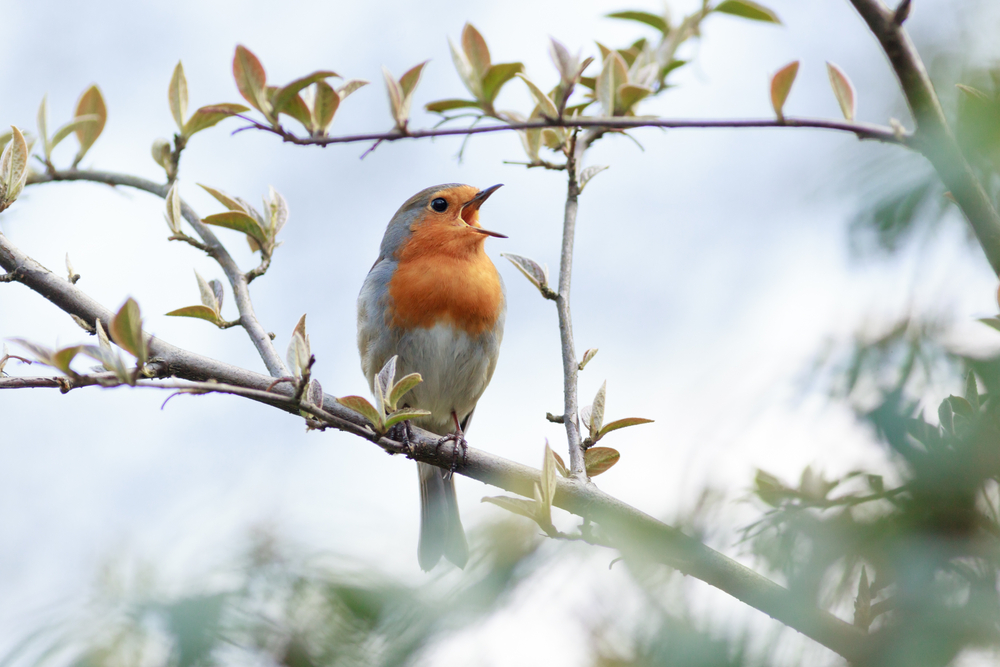The One Natural Sound That Does Wonders For Your Mental Health

Picture this: the soft rustle of leaves, waves lapping at the shore, or birds singing at dawn. These aren’t just soothing moments—they strike a chord deep within us. In the chaos of modern life, these natural sounds can feel like a breath of fresh air, grounding us in ways nothing else can.
It’s no accident we respond this way. Humans evolved alongside these sounds, and they’ve shaped how we relax and recharge. Scientists call it biophilia—our natural affinity for the outdoors. These sounds don’t just help us unwind; they actively reduce stress, sharpen focus, and even aid physical recovery.
So, why do they have such a powerful effect? And how can tuning into nature’s playlist transform our mental health? Let’s explore what makes these sounds more than just pleasant—they might be the key to real healing.
Nature’s Sounds: The Key to Better Health and Focus
Did you know that the sounds of nature—like birdsong, rushing water, or waves crashing on a beach—aren’t just pleasant? They’re scientifically proven to work wonders for your mind and body. Research has revealed that these natural symphonies go beyond relaxation, offering tangible benefits for health and focus.
A 2021 meta-analysis by Buxton et al., reviewing 36 studies, found that natural sounds significantly reduce stress and lift mood. They even enhance cognitive performance, helping people think more clearly. In a similar vein, a 2023 study by Song et al. showed that students exposed to sounds like flowing water and birdsong performed better on attention tasks compared to those subjected to urban traffic noise. It’s not just about blocking out chaos—it’s about engaging with harmony.
These studies highlight something crucial: natural soundscapes are more than just background noise. They’re a tool for mental clarity and emotional balance. And with urbanization on the rise, preserving these soundscapes isn’t just about protecting nature—it’s about protecting our well-being.
Birdsong: Nature’s Remedy for the Anxious Mind

Ever noticed how a simple birdsong can instantly brighten your mood? It’s not just in your head—science backs it up. Research has shown that the melodies of birds can ease symptoms of anxiety, depression, and even paranoia. It’s like nature’s way of saying, “Take a deep breath—you’ve got this.”
In fact, a study from King’s College London found that listening to birdsong can bring a noticeable boost to mental health. While the exact reasons for this remain a mystery, the results are undeniable. Even lifestyle writers have shared how the cheerful sound of birds chirping in the morning lifts their spirits and sets a positive tone for the day.
Whether it’s a robin’s call or the chatter of sparrows, these sounds remind us to pause and reconnect with the world around us. So, the next time life feels overwhelming, step outside and let nature’s tiny songsters work their magic.
The Therapeutic Power of Birdsong
There’s something about birdsong that just feels healing, even if science hasn’t yet cracked exactly why. Researchers believe it could hold the potential to revolutionize mental health care. Imagine this: doctors prescribing a walk through bird-rich parks or a visit to a nature reserve, not just as a pleasant escape but as an actual therapy.
This concept, known as social prescribing, could pair perfectly with traditional treatments for mental health conditions. By immersing people in the natural world—whether it’s a quiet park or the familiar chirps in your backyard—these simple experiences might help reduce stress and foster emotional balance.
The beauty of birdsong lies in its accessibility. You don’t need to travel far or spend a fortune to feel its benefits. Sometimes, the answer to a healthier mind is right outside your window.
How Natural Sounds Influence Our Brain and Body

Ever wondered why nature’s sounds feel so calming? It turns out that their effect isn’t just psychological—it’s deeply physiological too. When you hear birdsong, flowing water, or the rustling of leaves, your brain responds by shifting into a more relaxed state. Studies show that natural sounds can lower levels of cortisol, the body’s primary stress hormone, while boosting activity in the parasympathetic nervous system—the part of the brain responsible for rest and recovery.
What’s more, these sounds can actually help rewire how we process stress. In urban environments, constant noise like traffic or alarms keeps our fight-or-flight responses on high alert. Natural sounds, however, signal safety to the brain, allowing it to unwind and reset. This is why spending time in nature—or even listening to high-quality recordings—can enhance sleep quality, improve focus, and reduce symptoms of burnout.
The science is clear: natural soundscapes aren’t just relaxing; they actively help our brains and bodies heal. In an increasingly noisy world, reconnecting with these sounds could be the reset we all need.
Nature’s Sounds in Mental Health Therapy

Imagine battling anxiety, depression, or even compulsive behaviors and finding relief not in a pill but in the sounds of nature. Research is showing that this might not be as far-fetched as it sounds. A 2020 study from Japan by Ochiai et al. explored this with male patients struggling with gambling disorders. By exposing them to forest and city sounds, researchers found that the forest sounds had a remarkable effect—reducing negative emotions and encouraging relaxation both physically and mentally.
Building on this, a 2023 study by White et al. focused on individuals with depression, showing that the simple act of watching and listening to birds improved their well-being, with benefits that lasted far beyond the moment. These findings make it clear that nature’s melodies aren’t just background noise—they’re a powerful tool with real therapeutic potential.
From forests to birdsong, natural soundscapes could play a significant role in mental health therapy, offering a complementary approach to traditional treatments. As research grows, these sounds may become a cornerstone of holistic mental health care.
Harnessing Nature’s Melody for Well-Being
Nature’s sounds aren’t just beautiful—they’re transformative. Research has repeatedly shown their ability to ease anxiety, sharpen focus, and uplift our mood. Whether it’s the calming rush of a stream, the rustle of leaves, or the cheerful song of a bird, these melodies resonate deeply with our minds and bodies.
What makes this even more remarkable is how accessible these benefits are. Unlike many wellness tools, nature’s symphony doesn’t cost a thing. It’s all around us, waiting to be embraced. A walk in the park, a few moments by an open window, or even recordings of natural sounds can offer an immediate boost to our well-being.
In a fast-paced world that often feels overwhelming, these natural harmonies remind us of something simple but powerful: the healing we seek might already be within reach. All we need to do is listen.
Featured image source: Shutterstock
Loading...






